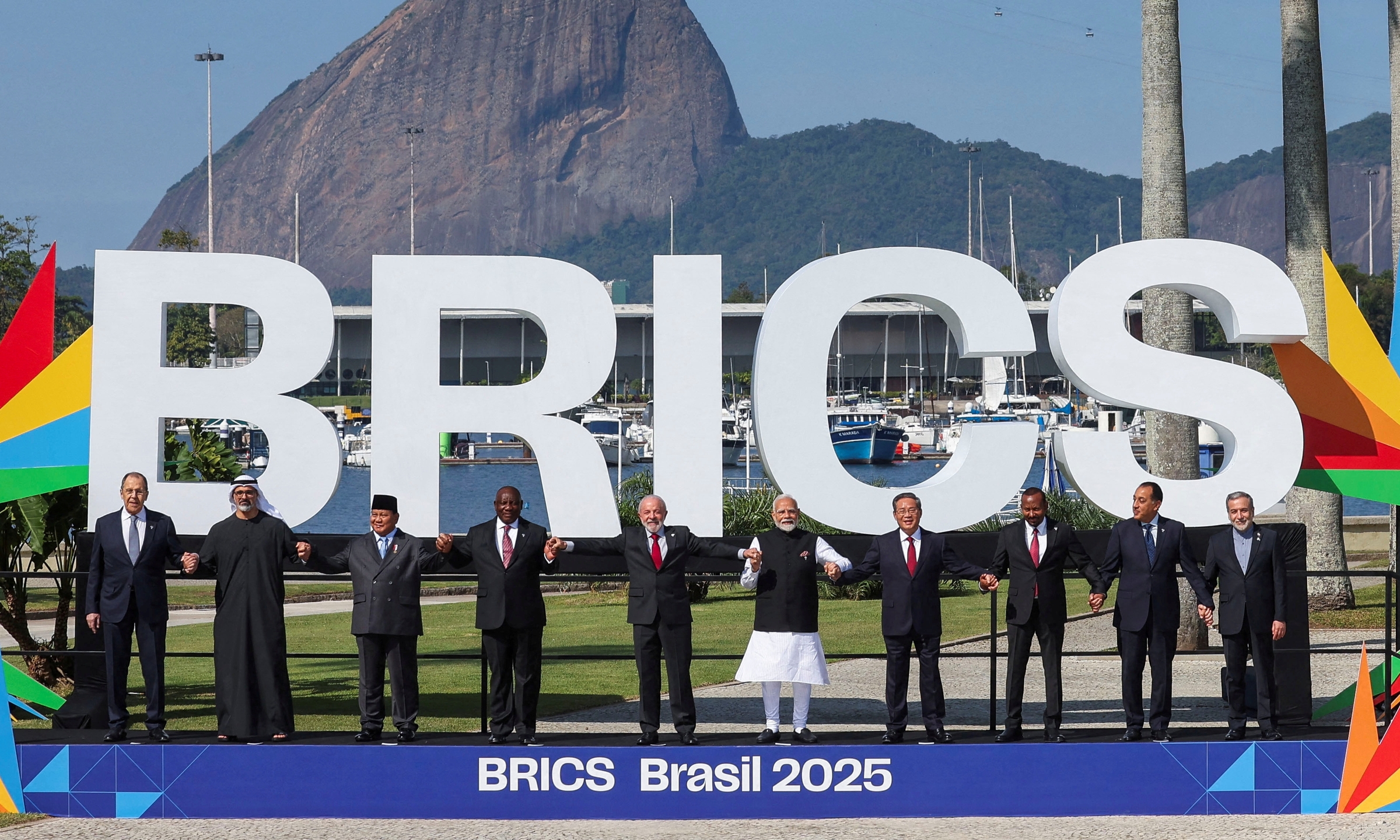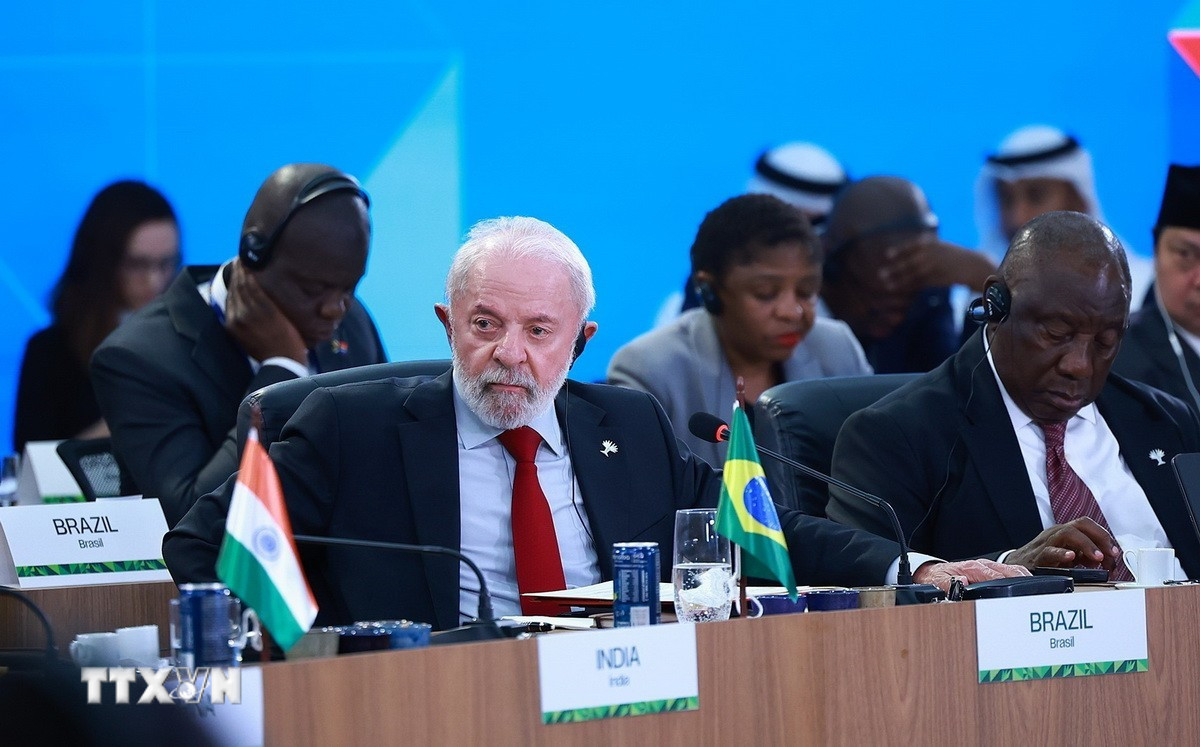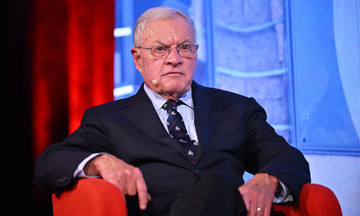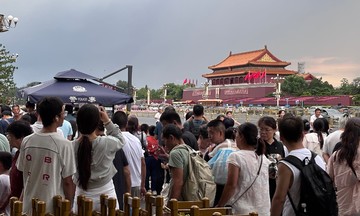In a joint declaration on 6/7, BRICS leaders at the summit in Rio de Janeiro, Brazil, warned that increasing tariffs threaten global trade, implicitly criticizing US President Donald Trump's tariff policies.
The leaders expressed support for Ethiopia and Iran joining the World Trade Organization (WTO) and urged the swift restoration of the WTO's ability to resolve trade disputes.
The declaration also supported a pilot program for a guarantee mechanism backed by the New Development Bank (NDB) to reduce financial costs and boost investment in member countries.
In a separate statement following discussions on artificial intelligence (AI), the leaders called for safeguards to prevent the misuse of AI, avoid excessive personal data collection, and establish fair payment mechanisms.
 |
BRICS leaders in Rio de Janeiro, Brazil, on 6/7. Photo: Reuters |
BRICS leaders in Rio de Janeiro, Brazil, on 6/7. Photo: Reuters
Brazilian President Luiz Inacio Lula da Silva criticized the neoliberal economic model and called for careful AI regulation to prevent its manipulation by the wealthy.
Lula da Silva cited data showing that in the past decade, around 3,000 billionaires amassed over 6,500 billion USD, while international aid flows declined and the debt burden of developing nations increased.
The Brazilian leader also expressed concern about the role of global financial institutions like the World Bank (WB) and the International Monetary Fund (IMF). He argued that current mechanisms are creating a "reverse Marshall Plan," with emerging economies effectively funding developed countries.
President Lula da Silva criticized inequities at the IMF, emphasizing that BRICS nations' voting rights should be at least 25%, not the current 18%.
He urged reform of the WTO, arguing that its paralysis and tolerance of protectionism severely disadvantage developing countries.
 |
Brazilian President Luiz Inacio Lula da Silva at the summit. Photo: TTXVN |
Brazilian President Luiz Inacio Lula da Silva at the summit. Photo: TTXVN
Russian President Vladimir Putin, speaking virtually, said the model of liberal globalization is becoming obsolete. He urged BRICS nations to increase cooperation in areas including natural resources, logistics, trade, and finance.
Chinese Premier Li Qiang said BRICS countries should lead in promoting global governance reform, as the world is experiencing unprecedented changes, international rules and order are being challenged, and the authority and effectiveness of multilateral institutions are weakening.
According to Li Qiang, BRICS nations should also focus on developing and strengthening economic growth drivers, taking the lead in development cooperation, and tapping the growth potential of emerging sectors.
Indian Prime Minister Narendra Modi emphasized that BRICS must continue to demand reform of international institutions, particularly the UN Security Council, the WTO, and multilateral development banks.
According to Modi, over 60% of the world's population lacks adequate representation in 20th-century global institutions, rendering them ill-equipped to address 21st-century challenges.
He called for a more multipolar and inclusive world order, starting with comprehensive reform of global organizations, including changes in governance structures, voting rights, and leadership roles, prioritizing the concerns of developing nations.
BRICS, comprising 10 members and several partners, accounts for nearly 40% of global GDP and almost half the world's population. The 2025 BRICS Summit took place on 6/7 and 7/7 in Rio de Janeiro, Brazil, with the theme "Strengthening South-South Cooperation for a More Inclusive and Sustainable Governance".
Ngoc Anh












